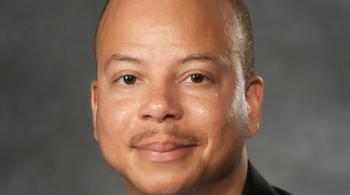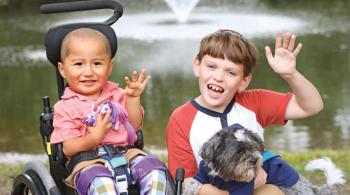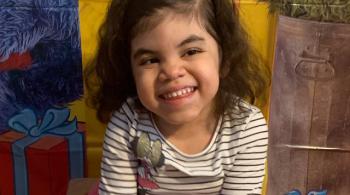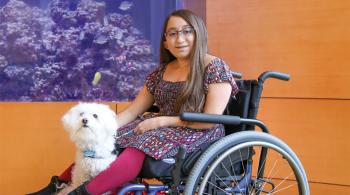Too often, bone loss, low bone mass, systemic bone disorders, or connective tissue diseases go unrecognized and undiagnosed, while rehabilitation efforts can seem to lose ground as quickly as it's gained. The Genetic Bone and Connective Tissue Disorders Program's mission is to effectively treat children and adults with bone disorders or hereditary connective tissue diseases, allowing patients to go on to resume their normal lives.
Throughout our careers, we've watched as children and young adults with a range of injuries or disorders have overcome significant challenges during rehabilitation. The journey to regain abilities and function can be a slow one, and certain individuals seem to face more roadblocks than others. In some cases, their progress is slowed or stalled by underlying and sometimes overlooked bone related disorders that can result in painful fractures and other skeletal complications that inhibit recovery and care. In a similar manner, individuals with an underlying hereditary connective tissue disorder may have some combination of excessive flexibility, joint pains, skin changes, eye abnormalities, heart problems, or muscle weakness and fatigue. As these features can mimic other conditions, an underlying connective tissue disease could be overlooked.
Over the years, the Kennedy Krieger Institute has made important strides in treating and managing Osteogenesis Imperfecta (OI), Ehlers-Danlos syndrome and other related conditions, and the Kennedy Krieger Institute Genetic Bone and Connective Tissue Disorder Program is recognized internationally as a major center for patients and families affected by these diseases. Our connective tissue, OI and bone specialists -- in accordance with the unique mission of the Institute -- also work as part of interdisciplinary teams treating children and young adults with a wide range of injuries and disorders of the brain and spinal cord.
Who We Are:
The Genetic Bone and Connective Tissue Disorders Program at Kennedy Krieger Institute provides a comprehensive approach to the diagnosis and treatment of bone and connective tissue disorders in children and adults, providing a solid foundation for patient care. Our team of experts uses the latest advances in the measurement of bone density, genetic testing and new therapeutic treatment options.
Who We Serve:
The Genetic Bone and Connective Tissue Disorders Program sees patients with a variety of disorders and diagnoses, including:
- Osteogenesis imperfecta (brittle bone disease)
- Ehlers-Danlos syndrome
- Idiopathic osteoporosis in children and young adults
- Unexplained frequent fractures or dislocations
- Joint hypermobility and chronic pain
- Osteopenia due to glucocorticoid use, cerebral palsy, spina bifida, spinal cord injury, immobilization, post-chemotherapy or celiac disease
- Mineral disorders such as vitamin D deficiency, hypophosphatasia and hypophosphatemic syndromes
- Fibrous dysplasia
- Marfan syndrome
- Stickler syndrome
- Loeys-Dietz syndrome
Our Team:
Patient care is provided by an interdisciplinary team that comprises of specialists below in the following fields:
- Clinical Genetics
- Endocrinology
- Genetic counseling
- Orthopedics
- Pain Medicine
- Physical Medicine and Rehabilitation
- Physical Therapy
- Psychiatry
- Psychology
Our Treatment Approach:
We are equipped with the latest technology, which allows us to offer a variety of diagnostic services, including:
- Complete bone density assessment
- Analysis of bone biomarkers (serum CTx, osteocalcin, bone specific alkaline phosphatase)
- Genetic DNA analysis using multiple state-of-the-art technologies
We have an on-site Infusion Suite, and offer a variety of treatment options:
- Nutritional modification
- Appropriate calcium and vitamin supplementation
- Oral and intravenous bisphosphonates
- Forteo® (teriparatide)
- Physical therapy services
- Mental health counseling




